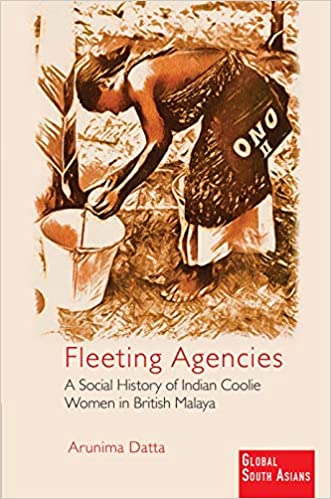This work, an important contribution to the gendered history of colonial Indian labour migration, offers a fresh perspective on coolie women’s everyday experiences and their contribution as producers and reproducers of labour to the plantation economy of Federated Malaya States (FMS) in British Malaya. The author challenges works which located women as passive victims of colonialism, nationalism, war, or patriarchy and captures the coexistence of traits of complicity, resistance and survival within coolie women’s everyday acts through proposing the idea of fleeting or situational agency.
Beyond open and defiant acts of resistances and long-lasting societal transformations, fleeting agency, she argues, can be traced in short-term relief or advantage, and implicit, covert, episodic, and non-oppositional agential acts of self-determination. The chapters explore the roles and everyday experiences of coolie women in spaces of labour, domesticity, intimacy, nationalist politics, and military services and how they actively negotiated the complex structures of gender, race, class, and migration. Coolie women’s engagements with patriarchy, migration policies, plantation economy, and social arrangements as well as British colonialism, Indian nationalism, and Japanese occupation during World War II are important parts of this work.

